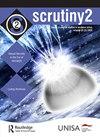重新审视富勒自传写作中的移民话语
IF 0.1
0 LITERATURE
Scrutiny2-Issues in English Studies in Southern Africa
Pub Date : 2018-01-02
DOI:10.1080/18125441.2018.1491620
引用次数: 2
摘要
自2000年以来,津巴布韦白人作家出版了大量回忆录,这些回忆录往往聚焦于历史与现在、个人与集体身份、流离失所与怀旧之间的复杂关系。其中一本回忆录是亚历山德拉·富勒(Alexandra Fuller)于2002年出版的《今夜别让我们走狗》(Don 't Let 's Go To the Dogs Tonight)。最近的批评集中在回忆录中的话语上,认为它代表了定居者话语(或罗得西亚话语),并借鉴了殖民意象和意识形态。这种观点是基于回忆录对非洲南部怀旧和归属感的表现。这篇文章挑战了其中的一些观念,并提出问题是回忆录是否表现或描绘了殖民意识形态,以及以何种方式。此外,尽管“定居者话语”被广泛应用,但在这方面并没有得到适当的定义。在富勒回忆录的背景下重新定义定居者话语提出了关于津巴布韦白人写作的问题,并表明文学本身存在多大的争议。富勒在儿童和成人之间转换的叙事声音是分析的核心。我的讨论表明,儿童的声音在很大程度上表现了罗得西亚语篇,而成人叙述者只是描绘了这种话语和意识形态。本文章由计算机程序翻译,如有差异,请以英文原文为准。
Re-examining Settler Discourse in Alexandra Fuller’s Autobiographical Writing
ABSTRACT Since 2000, a large number of memoirs by white Zimbabwean writers have emerged, often focusing on the complex relationship between history and the present, between personal and collective identity, and on displacement and nostalgia. One such memoir is Don’t Let’s Go To the Dogs Tonight by Alexandra Fuller (published in 2002). Recent criticism has focused on the discourse in the memoir, arguing that it represents settler discourse (or Rhodesian discourse) and draws on colonial imagery and ideology. This view is based on the memoir’s representation of nostalgia and belonging in southern Africa. This article challenges some of these notions and suggests that the question is whether the memoir performs or portrays colonial ideology, and in what ways. Furthermore, “settler discourse” has not been properly defined in this context, despite being widely applied. Redefining settler discourse in the context of Fuller’s memoir raises questions about white Zimbabwean writing in general, and demonstrates how inherently controversial the literature remains. Fuller’s narrative voice, which switches between that of the child and the adult, is central to the analysis. My discussion shows that the child’s voice performs Rhodesian discourse to a large extent, but that the adult narrator merely portrays such discourse and ideology.
求助全文
通过发布文献求助,成功后即可免费获取论文全文。
去求助
来源期刊
CiteScore
0.50
自引率
0.00%
发文量
10
期刊介绍:
scrutiny2 is a double blind peer-reviewed journal that publishes original manuscripts on theoretical and practical concerns in English literary studies in southern Africa, particularly tertiary education. Uniquely southern African approaches to southern African concerns are sought, although manuscripts of a more general nature will be considered. The journal is aimed at an audience of specialists in English literary studies. While the dominant form of manuscripts published will be the scholarly article, the journal will also publish poetry, as well as other forms of writing such as the essay, review essay, conference report and polemical position piece. This journal is accredited with the South African Department of Higher Education and Training.

 求助内容:
求助内容: 应助结果提醒方式:
应助结果提醒方式:


